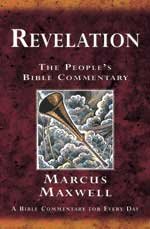Well, I'm back.
Of course, not many people knew I'd been away, and it was only for ten days, but it feels like a trip to another world. In some ways, it was.
I was taking part in a sort of conference for clergy. There were only twenty-four of us, but it was interesting and challenging. The speakers were fascinating, the discussion engrossing and the food amazingly delightful. All this took place at St. George's House in Windsor Castle, and that was the different world.
People there didn't lock the doors of their houses, and left cars parked with keys in the ignition. I think the idea was that your average burglar and car thief might be put off by the men and women in flak jackets and carrying machine guns who greet you when you enter the castle. To enter, of course, you need a security pass (or to have bought a ticket).
There's a little chapel there (well, bigger than St. John's, Heaton Mersey) with a Dean, canons and choristers. Services are three times a day, and the evening prayer is beautifully sung. (One can't actually join in, but it's great to listen to.) Knights of the Garter gather there on special occasions and sit in the choir under their personal banners. The Canons are erudite, and organise conferences and discussions for the great and the good (and occasionally the clergy).
And somewhere in the background are royalty. One evening I was warned against going down a certain part of the cloister because a Duke and Duchess were down there. I said I wasn't afraid, but they still wouldn't let me in.
The whole thing was a sort of surreal experience, a glimpse into a world which rarely interacts with the one I normally live in, and then only in carefully managed events.
And yet, strangely enough, it turned out to be an ideal place to get away from the everyday and spend some time reflecting on the topic of the conference - how to speak about God in the light of the present world.
We had various speakers address us on everything from the shape of future computers (in bacteria, living in yoghurt) to stem cell research and cloning (you can make a copy of yourself with existing technology, but you'll have to do it in Paraguay where it's not illegal). One of the speakers was Alan Rusbridger, editor of The Guardian.
He spoke about how newspapers are rapidly becoming redundant in the light of the internet and social networking sites like Facebook and Twitter. Once, he said, journalists lived in their own little world, where they produced newspapers and threw them out to be read by those of us who lived in the world outside. Nowadays that's impossible. People want to question and comment - and some of them know more about the subjects in view than do the journalists who write about them.
Newspapers can no longer live in their separate world. They have to get out, produce the news, but allow it to feed back, to be challenged and indeed to be improved by the encounter with the wider public. Hence the Guardian web site is replacing the printed paper and being a place where issues are discussed and updated far more quickly than could be done with the daily paper.
News is even gathered in from the public - and issues can be investigated simply by asking for help on Twitter. Needless to say, some journalists don't like this. They prefer the old model - pass on information and move on. Now they have to discuss their articles on a web site.
I couldn't help seeing a parallel with Windsor Castle. The old papers were like that - a sealed environment full of a certain expertise and encountering the rest of the world only in a special way - like the encounters of royalty with the commoners, in carefully managed events, with no prospect of a chance encounter in a cloister.
But of course, there's a parallel that's much closer to home. For isn't that how the church is traditionally seen to work? We worship and pray in our own religious world, and occasionally throw a message ("the gospel") out over the walls, hoping someone will respond, and come knocking on the door.
I suspect the model has never really worked. It's only when we interact with the people around us, allowing ourselves to hear their questions and doubts, and letting them see what makes us tick that a message is truly communicated. If we have good news to share, it will be shared with people who see us as willing to show our faith, our hopes, our weaknesses and our doubts and discuss them in the public arena.
So, where do I sign up for Twitter?
Wednesday, 3 November 2010
Subscribe to:
Post Comments (Atom)


1 comment:
The Guardian lost £44 million last year, so they might be right that the future is online but they might not be part of it.
I use Facebook for private life and LinkedIn for professional life, and follow a few people on Twitter but never check it. Google+ is good for particular groups. But a Facebook page for the church would be good.
You could use Facebook with Twitter integration to post services and so on. Or musings on the day. Twitter might be a good communication medium for discussion.
Post a Comment